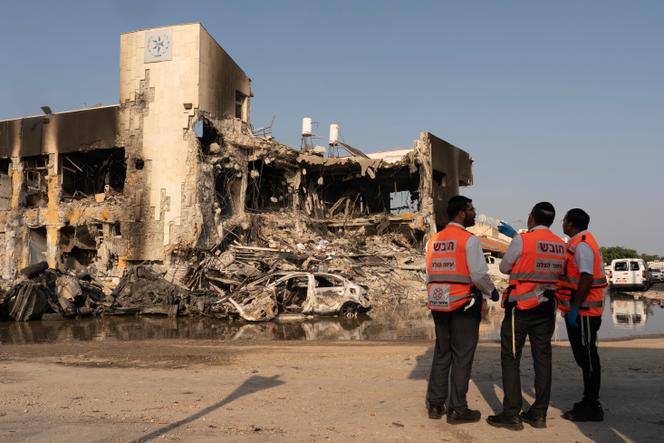


Since the outbreak of war between Israel and Hamas on the weekend of October 7 and 8, each side has been brandishing its own rhetoric. Françoise Bouchet-Saulnier, Legal Director of Médecins sans Frontières (Doctors without Borders, MSF) and author of Dictionnaire pratique du droit humanitaire (The Practical Guide to Humanitarian Law), reminds us that words have weight and very specific meanings.
On Monday evening, October 9, Israeli Defense Minister Yoav Gallant ordered a "complete siege" of the Gaza Strip. "There will be no electricity, no food, no fuel, everything is closed," he declared. "We are fighting human animals and we are acting accordingly," he added. Israel withdrew from the Gaza Strip in 2005, after thirty-eight years of occupation, but a blockade of the enclave has been in place since 2007. "The law of war is very clear: when you place an area under siege, you must allow supplies to reach the civilian population," explained Bouchet-Saulnier. "You can't stop the supply of goods essential to the survival of the population. You can't punish an entire population for hostile acts committed by an organized armed group based there. Humanitarian law forbids interrupting the passage of goods, particularly those of a medical or food nature."


According to the legal scholar, "someone [will be needed] to check that legitimate relief supplies for the population can get through. This is what the United Nations had put in place in the context of the war in Syria, with mechanisms guaranteeing the humanitarian nature of shipments".
Two days before the decision to tighten the siege of Gaza, and after Hamas attacks on villages and an electronic music festival in southern Israel – which in total reportedly left at least 900 people dead – Benjamin Netanyahu declared, "We are at war." Bouchet-Saulnier emphasized that while the conflict has its roots in the creation of the State of Israel in 1948, it has been "continuously evolving". "Since this weekend, we have been dealing with an episode of reactivation of an armed conflict frozen due to the occupation [of the West Bank, including East Jerusalem] and also due to the blockade of Gaza, which was supposed to geographically neutralize the danger," she said.
With his statements, the Israeli prime minister is declaring, according to Bouchet-Saulnier, "that the nation is in danger and that force will have to be used to restore the balance. Israel is no longer in the situation of an aggressor but of legitimate defense of its own security, which is one of the fundamental rights of States, recognized by the United Nations Charter and by the law of armed groups".
You have 47.87% of this article left to read. The rest is for subscribers only.
